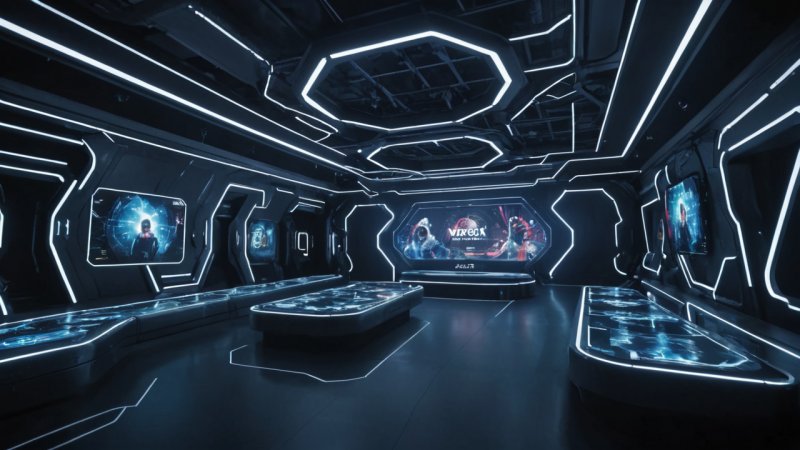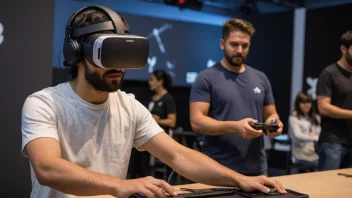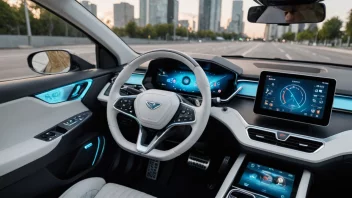The entertainment industry is undergoing a seismic shift as Artificial Intelligence (AI) becomes an integral part of its evolution. From content creation to audience engagement, AI is transforming how entertainment is produced and consumed. This article delves into the various ways AI is changing the landscape of entertainment and what this means for fans and creators alike.
One of the most noticeable impacts of AI is in the realm of content personalization. Streaming platforms like Hulu, Disney+, and Amazon Prime Video utilize AI algorithms to analyze user behavior and preferences. By processing vast amounts of data, these platforms can recommend shows and movies tailored to individual tastes. This level of personalization not only enhances viewer satisfaction but also keeps audiences engaged by helping them discover new content that they might enjoy based on their viewing history.
Moreover, AI is revolutionizing the way content is created. Writers and directors are now leveraging AI tools to brainstorm ideas, develop scripts, and even edit footage. For example, AI algorithms can analyze successful films and identify common themes, pacing, and character arcs that resonate with audiences. This data-driven approach allows creators to produce content that is more likely to succeed at the box office or attract viewers on streaming platforms.
In addition to content creation, AI is making waves in the field of visual effects. Traditional methods of creating stunning visual effects can be time-consuming and costly. However, AI-driven tools are now capable of generating high-quality visuals in a fraction of the time. This not only expedites the production process but also opens up new creative possibilities for filmmakers. With AI, even independent filmmakers can achieve effects that were once reserved for big-budget productions.
Another exciting area of AI's influence is in interactive entertainment. Video games are increasingly integrating AI to create more immersive and responsive experiences. AI can enable NPCs to learn from player actions, adapt their strategies, and provide a more challenging gameplay experience. Additionally, AI algorithms can analyze player data to customize the game difficulty, ensuring that each player finds the experience engaging and enjoyable.
AI is also making strides in the music industry. With the rise of AI-generated music, artists can now collaborate with algorithms to create unique compositions. These AI platforms can analyze existing music trends to generate new melodies or beats, offering musicians a fresh perspective on their work. As AI continues to evolve, it will likely play a significant role in shaping the future of music production and composition.
Despite the myriad benefits AI brings to entertainment, it also raises important ethical questions. Concerns about copyright infringement, authenticity, and the potential displacement of creative jobs need to be addressed. Striking a balance between leveraging AI's advantages and preserving the human element in storytelling will be crucial as the industry adapts to this new reality.
In summary, AI is fundamentally transforming the entertainment landscape. From personalized content recommendations to innovative content creation and interactive experiences, AI is enhancing how we engage with entertainment. As technology continues to advance, the future of entertainment holds exciting possibilities that will redefine the way stories are told and enjoyed.
AI's Role in Future Entertainment Experiences
Explore how AI is revolutionizing the entertainment industry, from personalized content to innovative creation methods.






